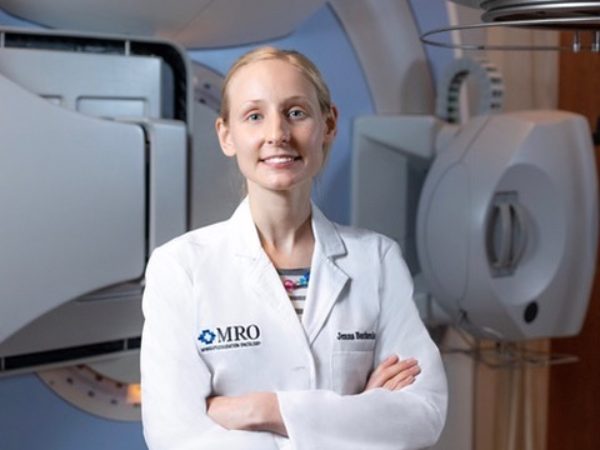
MRO has adopted Optional Masking for staff and patients.
- All MRO treatment centers are open during normal operating hours.
- The health and safety of patients is our primary mission.
- MRO will continue to keep you updated with new developments during and after the COVID-19 outbreak.
Amid the COVID-19 outbreak, Minneapolis Radiation Oncology (MRO) is committed to doing everything we can to ensure the safety of our patients and staff. We have implemented an internal COVID-19 Task Force that is continually monitoring, evaluating, and updating procedures. And we’re following recommendations from the Centers for Disease Control and Prevention (CDC), the Minnesota Department of Health (MDH), the American Society of Therapeutic Radiation Oncology (ASTRO) and other federal, state and local agencies.
Some people with cancer might have a higher risk of getting COVID-19 and the increased risks associated with having cancer. Take steps to protect yourself. Ask your MRO doctor or nurse about special recommendations based on your own health or type of treatment.
Here are some frequently asked questions and answers you may find helpful. Please keep in mind that the situation for COVID-19 is changing daily, so these recommendations may change.
What is COVID-19?
COVID-19, or novel coronavirus, is a new type of virus that can cause mild to severe infections in the lungs, especially for people with weakened immune systems.
How does COVID-19 spread?
Like the common cold or flu, COVID-19 spreads quickly and easily. When an infected person coughs or sneezes, the droplets can get into the eyes, nose, or mouth of people nearby. These droplets may also land on surfaces that people touch before touching their own eyes, nose, or mouth.
How can I protect myself?
- Wash your hands often with soap and water, for at least 20 seconds.
- Use hand sanitizer with 60% or more alcohol until you can wash your hands with soap and water.
- Avoid touching your eyes, nose, and mouth without washing your hands first.
- Clean and disinfect surfaces often. Regular household wipes and sprays will kill the virus. Be sure to clean places that people touch a lot, such as door handles, phones, keyboards, and light switches.
- Practice “social distancing.” Avoid handshakes, hugging, and standing or sitting close to people who are coughing or sneezing.
- Get plenty of sleep, eat healthy, exercise, and manage your stress to stay as healthy as you can.
- Stay up to date with COVID-19 Vaccines
If you are sick, follow these steps:
- Stay home. Avoid others in your home as much as possible.
- Cover your nose and mouth when you cough or sneeze. If you use a tissue, put it in the garbage right away. If you don’t have a tissue, cough or sneeze into your elbow crease.
- Call before going to your medical appointments. Let them know about your symptoms or if you have had contact with a person with COVID-19.
- Get tested for COVID-19 if needed
Call your doctor right away if you are high risk and:
- You have a fever higher than 100.4 degrees F
- You feel short of breath or have difficulty breathing
- You develop a new cough
- Other symptoms may include:
- Chills
- Muscle pain
- Headache
- Sore throat
- New loss of taste or smell
Should I wear a mask?
Masks can help protect you and others from COVID-19. Ask your doctor or nurse if you should use a certain type of mask because of your own health or occupation. If you have respiratory symptoms, please call your MRO therapy center before coming to the clinic. MRO will provide a mask for patients to wear in the department if needed.
Please help us prevent the spread of respiratory illnesses and wear a mask if you:
- Have any of the following symptoms:
- Fever
- Cough
- Sore throat
- Congestion/runny nose
- Muscle/body aches
- New loss of taste/smell
- Headache
- Nausea/vomiting
- Tested positive for COVID-19 in the last 10 days
- Had exposure to COVID-19 in the last 10 days
What if I care for or live with a cancer patient?
If you are caring for or living with someone with cancer, follow the preventive steps carefully to protect yourself and them. If you become sick yourself, call your doctor to see what more you should do to protect your loved one.
What about people accompanying a patient for their treatment?
If you are sick or have been exposed to COVID-19, do not come to the clinic. Find someone who is not sick to accompany your loved one at their appointments. To protect everyone, we limit the number of people who can accompany the patient. Video consults may also be an option for you. Please check with your MRO care team.
How is MRO protecting me from COVID-19?
We’re taking steps to keep infected patients separate from those who may be at risk. We’re also taking extra steps to clean and disinfect surfaces throughout our clinics. You’ll find “sanitation stations” at all entrances with tissues and hand sanitizer.
At each appointment, your care team will ask about your overall health. If you have symptoms, we may ask you to wait in a separate room or to reschedule when you’re feeling better.
MRO staff will wear a mask at your request during your visit.
Will you still care for me if I get sick?
Yes. At MRO, your fight against cancer is always our mission and our top priority. Each patient’s situation is evaluated and the best course of action will be implemented to keep you, other patients, and the staff as safe and healthy as possible.


